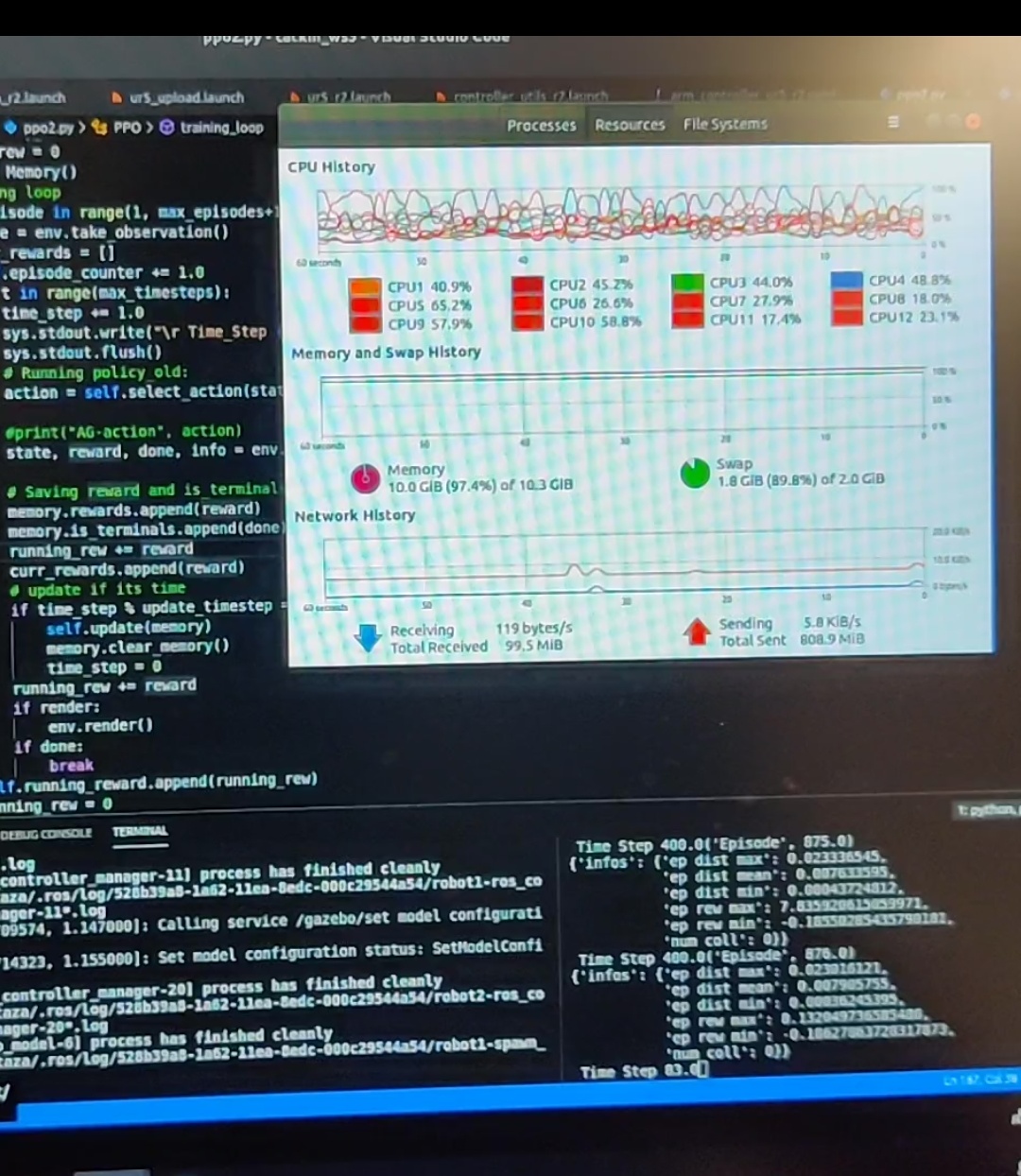- merged discrete and continuous algorithms
- added linear decaying for the continuous action space
action_std; to make training more stable for complex environments - added different learning rates for actor and critic
- episodes, timesteps and rewards are now logged in
.csvfiles - utils to plot graphs from log files
- utils to test and make gifs from preTrained networks
PPO_colab.ipynbcombining all the files to train / test / plot graphs / make gifs on google colab in a convenient jupyter-notebook
This repository provides a Minimal PyTorch implementation of Proximal Policy Optimization (PPO) with clipped objective for OpenAI gym environments. It is primarily intended for beginners in Reinforcement Learning for understanding the PPO algorithm. It can still be used for complex environments but may require some hyperparameter-tuning or changes in the code. A concise explaination of PPO algorithm can be found here and a thorough explaination of all the details for implementing best performing PPO can be found here (All are not implemented in this repo yet).
To keep the training procedure simple :
- It has a constant standard deviation for the output action distribution (multivariate normal with diagonal covariance matrix) for the continuous environments, i.e. it is a hyperparameter and NOT a trainable parameter. However, it is linearly decayed. (action_std significantly affects performance)
- It uses simple monte-carlo estimate for calculating advantages and NOT Generalized Advantage Estimate (check out the OpenAI spinning up implementation for that).
- It is a single threaded implementation, i.e. only one worker collects experience. One of the older forks of this repository has been modified to have Parallel workers
- To train a new network : run
train.py - To test a preTrained network : run
test.py - To plot graphs using log files : run
plot_graph.py - To save images for gif and make gif using a preTrained network : run
make_gif.py - All parameters and hyperparamters to control training / testing / graphs / gifs are in their respective
.pyfile PPO_colab.ipynbcombines all the files in a jupyter-notebook- All the hyperparameters used for training (preTrained) policies are listed in the
README.mdin PPO_preTrained directory
- if the environment runs on CPU, use CPU as device for faster training. Box-2d and Roboschool run on CPU and training them on GPU device will be significantly slower because the data will be moved between CPU and GPU often
Please use this bibtex if you want to cite this repository in your publications :
@misc{pytorch_minimal_ppo,
author = {Barhate, Nikhil},
title = {Minimal PyTorch Implementation of Proximal Policy Optimization},
year = {2021},
publisher = {GitHub},
journal = {GitHub repository},
howpublished = {\url{https://github.com/nikhilbarhate99/PPO-PyTorch}},
}
| PPO Continuous RoboschoolHalfCheetah-v1 | PPO Continuous RoboschoolHalfCheetah-v1 |
|---|---|
 |
 |
| PPO Continuous RoboschoolHopper-v1 | PPO Continuous RoboschoolHopper-v1 |
|---|---|
 |
 |
| PPO Continuous RoboschoolWalker2d-v1 | PPO Continuous RoboschoolWalker2d-v1 |
|---|---|
 |
 |
| PPO Continuous BipedalWalker-v2 | PPO Continuous BipedalWalker-v2 |
|---|---|
 |
 |
| PPO Discrete CartPole-v1 | PPO Discrete CartPole-v1 |
|---|---|
 |
 |
| PPO Discrete LunarLander-v2 | PPO Discrete LunarLander-v2 |
|---|---|
 |
 |
Trained and Tested on:
Python 3
PyTorch
NumPy
gym
Training Environments
Box-2d
Roboschool
pybullet
Graphs and gifs
pandas
matplotlib
Pillow

